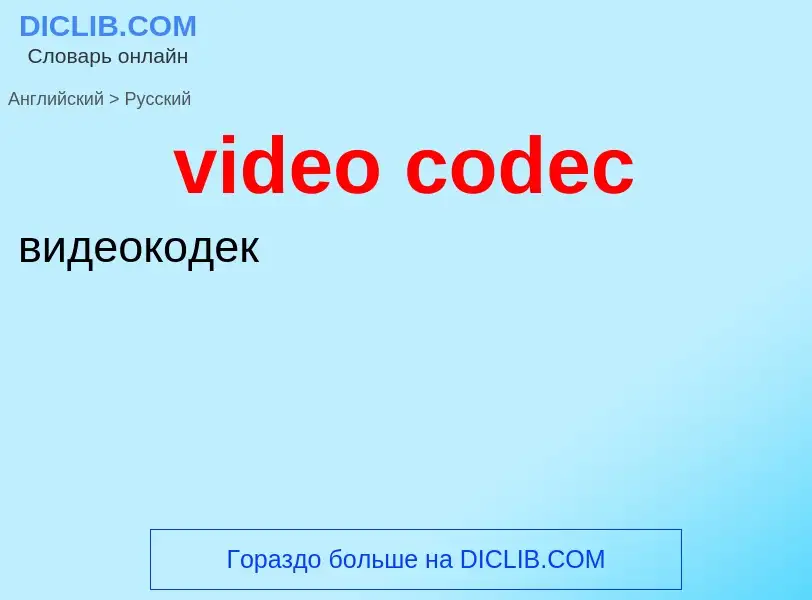Translation and analysis of words by ChatGPT artificial intelligence
On this page you can get a detailed analysis of a word or phrase, produced by the best artificial intelligence technology to date:
- how the word is used
- frequency of use
- it is used more often in oral or written speech
- word translation options
- usage examples (several phrases with translation)
- etymology
video codec - translation to russian
['kəudek]
общая лексика
(Compressor-Decompressor) кодек
технология сжатия/восстановления (уплотнения/разуплотнения) данных, аппаратный или программный механизм для преобразования исходного видео- или звукового аналогового сигнала в сжатую цифровую форму и обратно. Средства мультимедиа, основанные на алгоритмах уплотнения и разуплотнения данных
(coder/decoder) кодек, кодер/декодер
в телекоммуникации - микросхема или другое электронное устройство для преобразования цифровых сигналов в аналоговую форму и обратно
шифратор-дешифратор
существительное
[coder + decoder]
общая лексика
шифратор-дешифратор
кодер-декодер
Definition
Устройство для дистанционного ввода или вывода информации в вычислительных системах, оснащенное экраном визуального контроля.
Wikipedia
A video codec is software or hardware that compresses and decompresses digital video. In the context of video compression, codec is a portmanteau of encoder and decoder, while a device that only compresses is typically called an encoder, and one that only decompresses is a decoder.
The compressed data format usually conforms to a standard video coding format. The compression is typically lossy, meaning that the compressed video lacks some information present in the original video. A consequence of this is that decompressed video has lower quality than the original, uncompressed video because there is insufficient information to accurately reconstruct the original video.
There are complex relationships between the video quality, the amount of data used to represent the video (determined by the bit rate), the complexity of the encoding and decoding algorithms, sensitivity to data losses and errors, ease of editing, random access, and end-to-end delay (latency).

